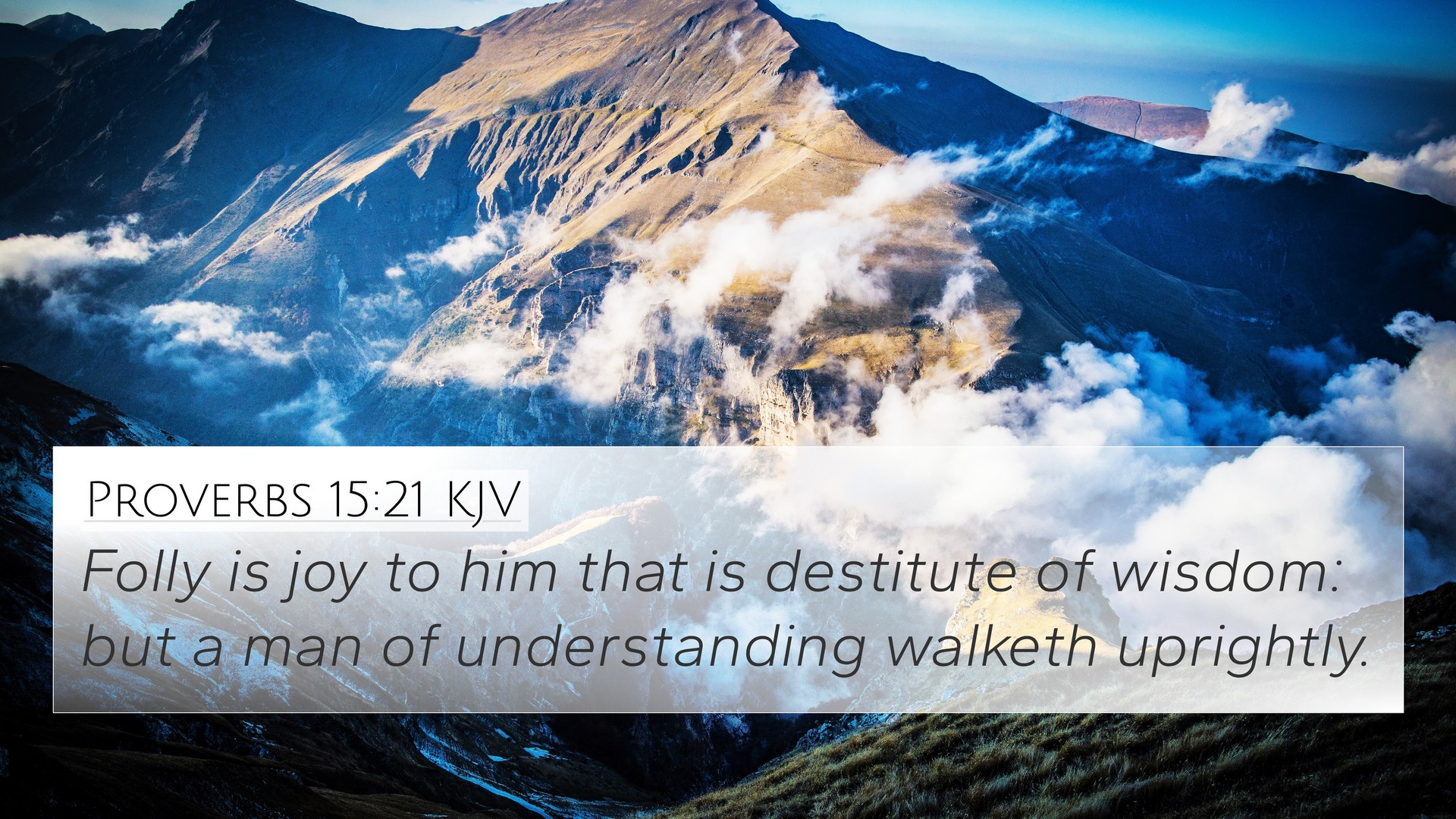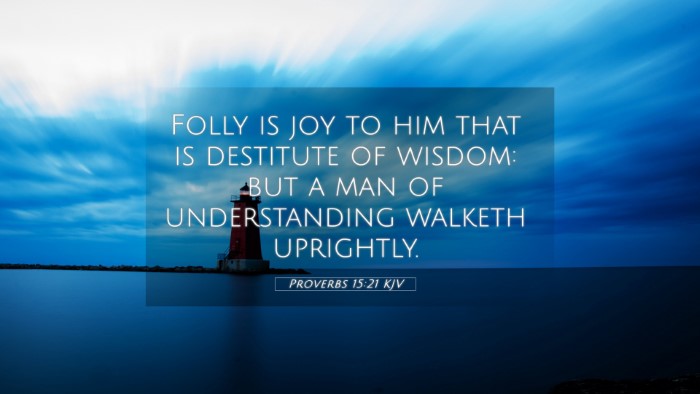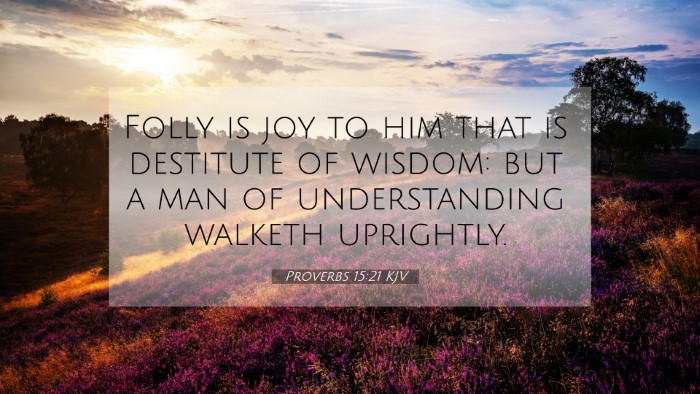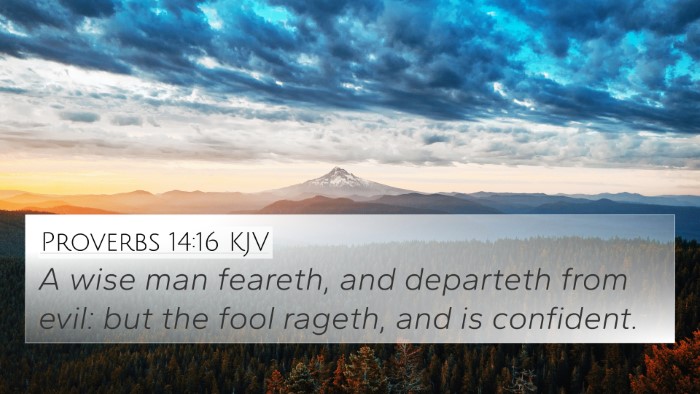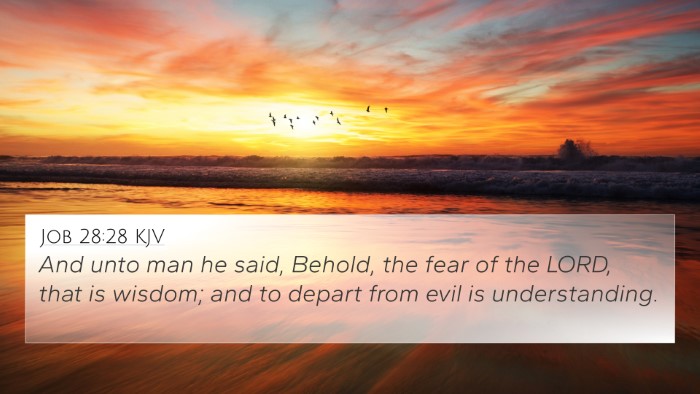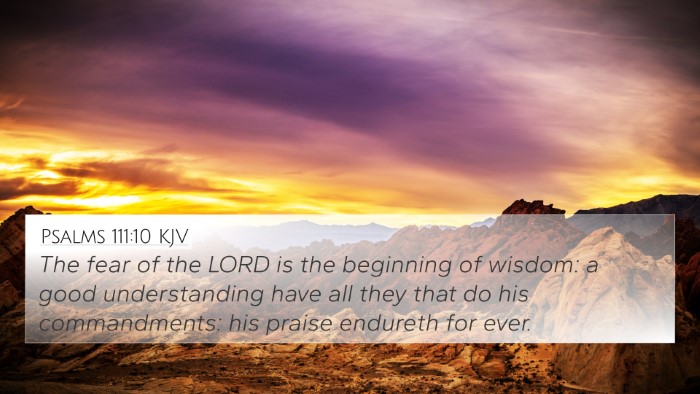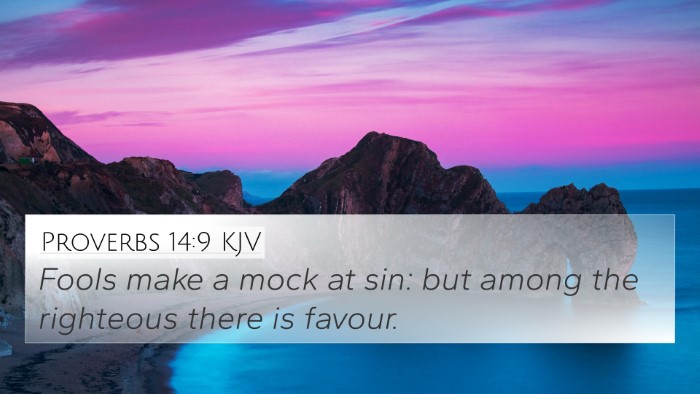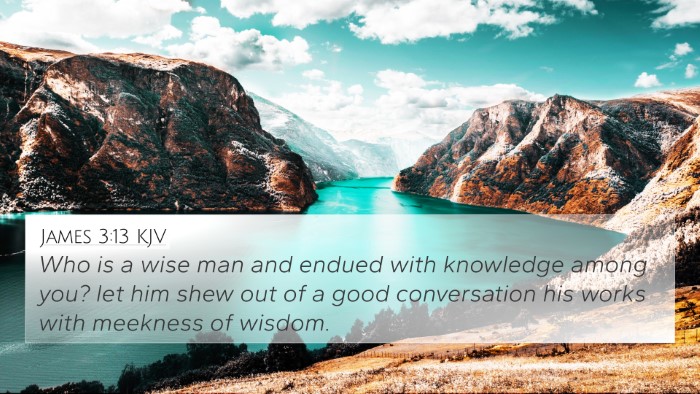Understanding Proverbs 15:21
Proverbs 15:21 states, "Folly is joy to him that is destitute of wisdom: but a man of understanding walketh uprightly." This verse contrasts the delight of the foolish or unwise with the behavior of the wise, emphasizing the importance of wisdom in leading a joyful and upright life.
Insights from Public Domain Commentaries
Matthew Henry's Commentary
Matthew Henry explains that folly or foolishness is appealing to those who lack wisdom, illustrating the temptation of living a life devoid of discernment. This highlights a critical truth: the fleeting enjoyment derived from folly can lead to a path filled with trouble and misery. In contrast, the wise individual finds joy in living a life guided by understanding and righteousness.
Albert Barnes' Notes
Albert Barnes shares that the verse illustrates the sharp contrast between the foolish person's temporary joy and the lasting satisfaction of the wise. He notes that folly provides amusement but ultimately leads to destruction. The "man of understanding" is depicted as someone who walks "uprightly," indicating that wisdom leads to ethical living and a meaningful existence.
Adam Clarke's Commentary
Adam Clarke emphasizes that the foolish take pleasure in their actions, often because they are ignorant of the consequences. He points out that true understanding brings about not just moral uprightness, but also an enduring sense of joy that transcends the superficial happiness associated with folly.
Key Themes and Connections
This verse opens a discussion on the connections between wisdom and joy, offering profound implications for our lives. By examining its themes alongside other scriptures, we can enhance our understanding through Bible verse cross-references and thematic connections.
- Proverbs 1:7 - "The fear of the Lord is the beginning of knowledge: but fools despise wisdom and instruction." This sets the foundation for valuing wisdom.
- Proverbs 3:13-18 - "Happy is the man that findeth wisdom, and the man that getteth understanding." This connects the pursuit of wisdom to happiness.
- Proverbs 10:23 - "It is as sport to a fool to do mischief: but a man of understanding hath wisdom." This directly connects the actions of the foolish to their character.
- Proverbs 17:12 - "Let a bear robbed of her whelps meet a man, rather than a fool in his folly." This highlights the danger of dealing with a fool.
- Ecclesiastes 2:14 - "The wise man's eyes are in his head; but the fool walketh in darkness." A reminder of the consequences of foolishness versus wisdom.
- James 1:5 - "If any of you lack wisdom, let him ask of God, that giveth to all men liberally." This encourages seeking divine wisdom, connecting it with personal growth.
- Colossians 2:3 - "In whom are hid all the treasures of wisdom and knowledge." Here, wisdom is tied to Christ, emphasizing its ultimate source.
The Importance of Cross-Referencing
Understanding Proverbs 15:21 through Bible cross-references enriches our exploration of the themes of wisdom and folly. Through cross-referencing biblical texts, we reveal a tapestry of interconnected truths that enhance our spiritual insight and practical living.
Practical Application in Life
In our lives, we can apply the truths of this verse by actively seeking wisdom and striving to live uprightly. Reflecting on the connections between such verses provides clarity on the moral framework and the consequences of our choices.
Tools for Bible Cross-Referencing
Utilizing resources like a Bible concordance and guides for Bible cross-reference studies can help deepen your study of these themes. Engaging in Bible cross-reference methods allows for a broader understanding of connected scriptures.
Conclusion
Proverbs 15:21 calls attention to the stark contrast between folly and wisdom, urging readers to pursue understanding. By engaging with comparative Bible verse analysis and exploring the links between scriptures, one can appreciate the richness of biblical wisdom and its application in everyday life.
